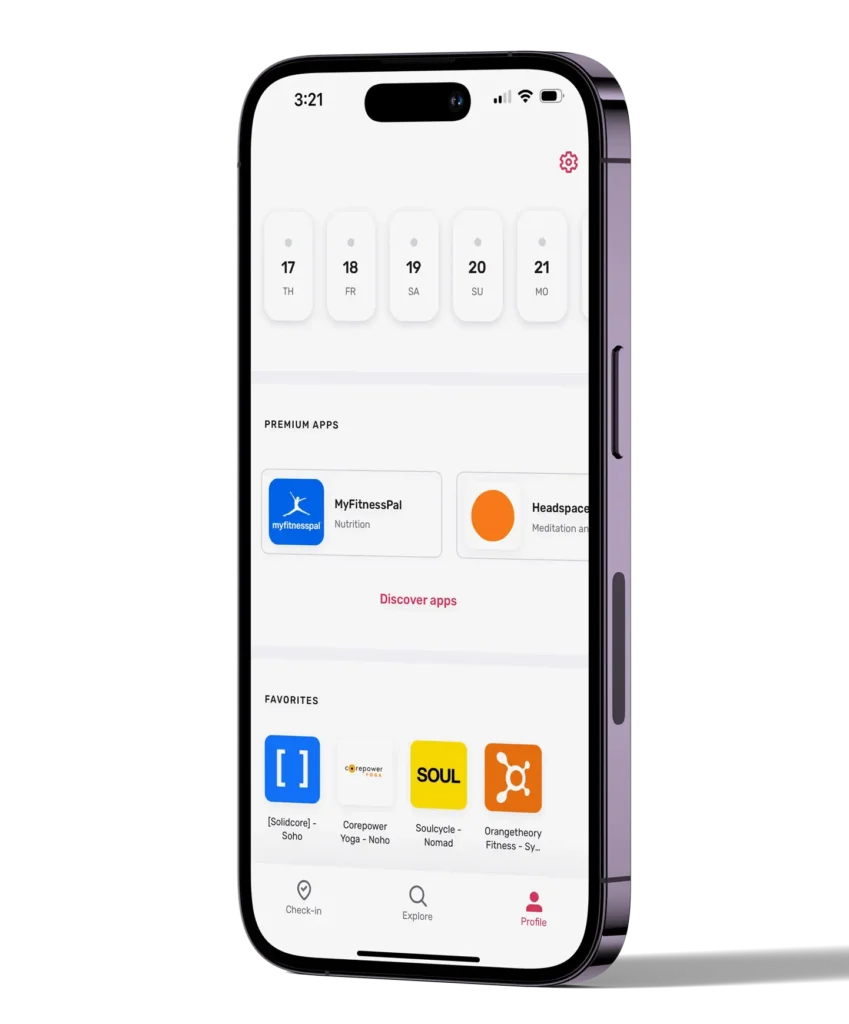For Gympass, Fitness Is a Necessity in the Modern Workplace

Fresh off a $2.4B valuation, the corporate wellness giant is touting the cost-savings benefits for employers who embrace fitness and wellness
Gympass has made it its mission to champion corporate wellness programs, and for good reason: the platform has attracted 15,000-plus customers and two million employee subscribers.
As Gympass ushers in a renaissance of health — one that advocates for employee wellness as the workforce has begun to expect employer perks such as gym memberships and fitness class discounts — the company has solidified its position as a leader in the category, recently raising an impressive $85 million in a Series F funding round at a $2.4 billion valuation.
The corporate wellness giant also recently partnered with Xponential Fitness in a deal to bring boutique fitness franchisor’s ten popular fitness brands available on the Gympass platform this month.
Invest Now, Save Later
While others in the fitness and wellness industry have struggled, perhaps due to a one-dimensional approach, Gympass is actively revolutionizing the definition of “corporate wellness” by encouraging employers to invest in health-focused benefits to not only attract top talent, retain employees and reduce absenteeism, but to increase profit.
The platform recently emphasized the importance of health-centered programs in a study finding that investing in employee wellness actually increases a company’s bottom line.
“Employee well-being is now a necessity, causing employers to double down on their wellness benefits,” said Carolee Gearhart, chief revenue officer at Gympass. “This has sparked massive growth for Gympass, and this year we surpassed a quarter of a billion (250 million member check-ins) to our network of 50,000+ partners. This milestone comes just 18 months after we reached 100 million total check-ins, indicating that we’re growing 10x faster today than we did in our first nine years in business. Beyond this, our paid, active subscriber growth nearly doubled year-over-year.”

Gearhart points out that more than four out of five employees globally believe well-being is equally important to salary, and 53% of U.S. workers and 44% globally reported that they’re stressed daily.
“Today’s employees understand the value of well-being and demand it, which is putting pressure on employers to adapt,” Gearhart said, adding that from an employer’s perspective, this necessitates a shift from reactive and traditional healthcare benefits that increase costs to more holistic and preventative wellness benefits that reduce costs and improve employee well-being and productivity.
“There is a growing demand for comprehensive wellness benefits encompassing mental health support, meditation guides, nutritional advice, sleep aids and financial literacy programs,” Gearhart notes. “Offering these resources can directly bolster employee engagement, satisfaction and productivity, thereby proving beneficial for both the employers and their staff.”
Perhaps most importantly, wellness programs go beyond just positively impacting employee acquisition, satisfaction and retention – they also decrease healthcare costs for the entire organization, which, as Gearhart points out, comes when these savings are desperately needed.
“I’m constantly talking to employers who are bracing for significant healthcare cost increases in 2024, and they’re worried,” she said. “But here’s the thing: Gallup estimates that a whopping 75% of company healthcare costs stem from preventable conditions. If they’re preventable… then let’s prevent them!”
Gympass, Gearhart explains, offers a solution for employers who connect preventative healthcare as a cost-reduction measure while also boosting employee happiness and engagement.
“And we have the data to back it up: physically active employees can reduce healthcare costs by 35%,” she said. “It’s a win-win-win for everyone involved, and 90% of the companies that measure their wellness program’s return on investment see a positive return. “
The Corporate Wellness Era
Corporate wellness programs have the potential to reshape how companies approach employee health benefits by encouraging the adoption of preventative wellness benefits. One Gympass study found that employees who engage in physical activities at least five times a month can help reduce a company’s healthcare costs by 35% over a 12-month period.
“There are a number of reasons why companies experience ROI on these wellness programs, with one of the primary reasons being that it actually saves businesses money in the long run,” Gearhart said, sharing that 78% of global human resource leaders surveyed said their wellness program reduced their health care costs, and 85% reported decreased utilization of sick days.

While employee priorities have changed, especially in response to the pandemic, Gearhart says the key trends in corporate wellness include flexibility, accessibility and personalization.
“Gympass lowers barriers to fitness and wellness by offering a variety of live, digital or on-demand solutions in subscriptions that cost employees up to 50% less than traditional memberships,” she noted. “With over 60% of new subscribers not having a gym membership before subscribing, Gympass more than doubles the number of employees engaged in wellness.”
As Gympass looks ahead, the wellness platform expects well-being programs to grow in the coming years.
“Our aim is to make employee well-being universal, creating an environment where employees feel empowered to prioritize their overall health,” Gearhart said.
Courtney Rehfeldt has worked in the broadcasting media industry since 2007 and has freelanced since 2012. Her work has been featured in Age of Awareness, Times Beacon Record, The New York Times, and she has an upcoming piece in Slate. She studied yoga & meditation under Beryl Bender Birch at The Hard & The Soft Yoga Institute. She enjoys hiking, being outdoors, and is an avid reader. Courtney has a BA in Media & Communications studies.



